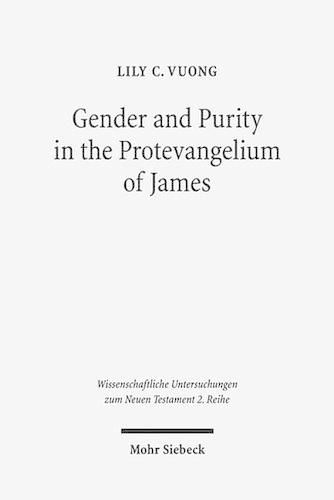Readings Newsletter
Become a Readings Member to make your shopping experience even easier.
Sign in or sign up for free!
You’re not far away from qualifying for FREE standard shipping within Australia
You’ve qualified for FREE standard shipping within Australia
The cart is loading…






The Protevangelium of James is arguably the earliest surviving source that exhibits profound interest in Mary, the mother of Jesus. Although frequently cited for later Christian reflections about Mary, gender, and virginity and its influence on popular Christian art, music, and literature, it is not well known outside academic circles and is rarely studied for its own sake. Lily C. Vuong offers a sustained analysis of the text’s narrative and literary features in order to explore the portrayal and characterization of Mary through a focus on the theme of purity. By tracing the various ways purity is described and presented in the text, the author contributes to discussions on early Jewish and Christian ideas about purity, representations of women in the ancient world, the early history of Mariology, and the place of non-canonical writings in the history of biblical interpretation.
$9.00 standard shipping within Australia
FREE standard shipping within Australia for orders over $100.00
Express & International shipping calculated at checkout
The Protevangelium of James is arguably the earliest surviving source that exhibits profound interest in Mary, the mother of Jesus. Although frequently cited for later Christian reflections about Mary, gender, and virginity and its influence on popular Christian art, music, and literature, it is not well known outside academic circles and is rarely studied for its own sake. Lily C. Vuong offers a sustained analysis of the text’s narrative and literary features in order to explore the portrayal and characterization of Mary through a focus on the theme of purity. By tracing the various ways purity is described and presented in the text, the author contributes to discussions on early Jewish and Christian ideas about purity, representations of women in the ancient world, the early history of Mariology, and the place of non-canonical writings in the history of biblical interpretation.